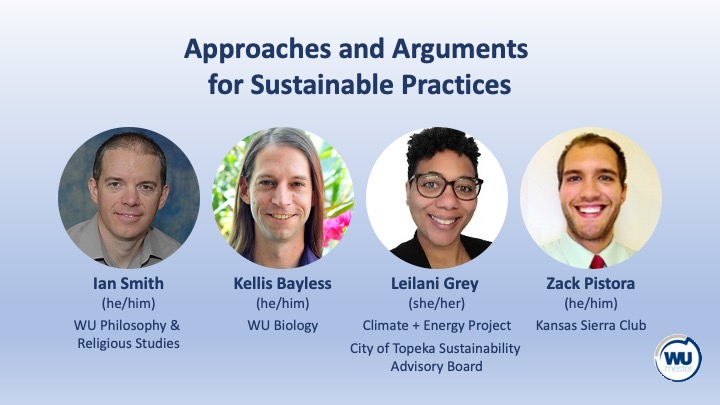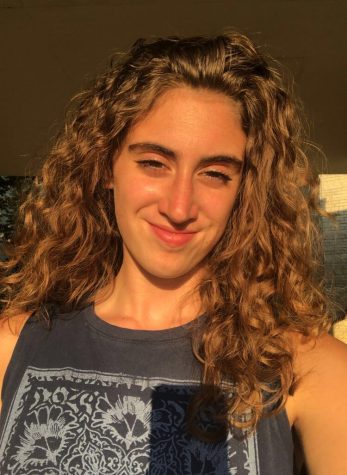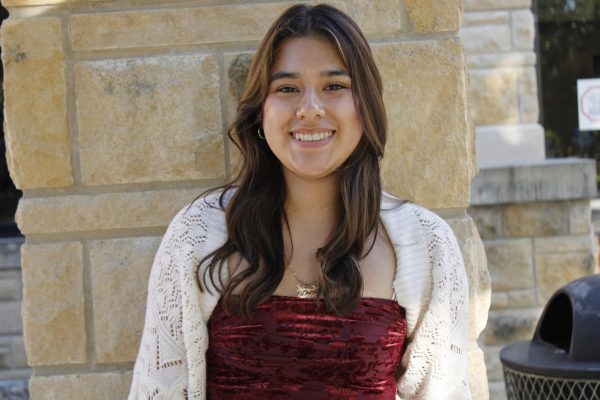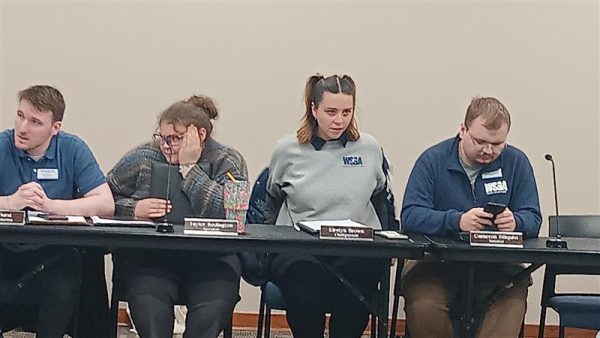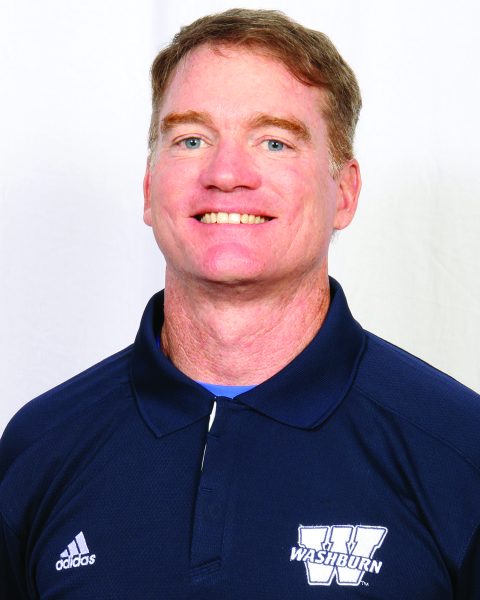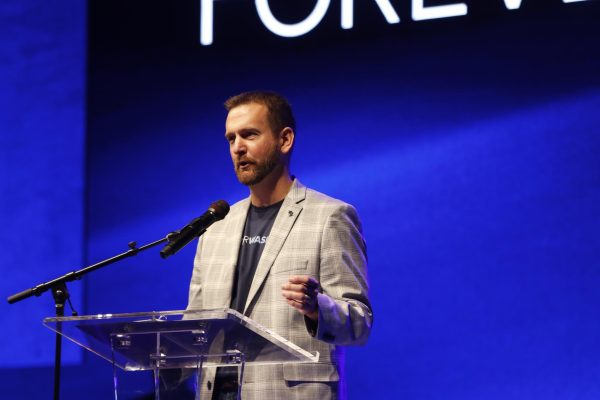Approaches and Arguments for Sustainable Practices: A Panel Discussion.
Sustainability is Possible: Each panelist brought another point off view to the discussion. Their discussion led to a fruitful conversation on sustainable practices.
Dr. Kara Kendall-Morwick, professor of English presented virtually four panelists on Feb. 10.
These speakers discussed concepts of sustainability pertaining to the rapid exploitation of natural resources throughout time, dating back to the Industrial Revolution.
Morwick passed the mic to Ian Smith, chair of philosophy and religious studies, to talk about environmental values and concepts of creating options for future human freedom and overall welfare.
“I think a thing that students can participate in; and [it’s] not activism, but getting to a position where [students] are thinking about these issues philosophically,” said Smith. “Generating conversations with their friends about what sustainability means, getting students to think about this stuff will help them in the ‘doing’ as well.”
Another concept of the term sustainability is introduced in the presentation of Kellis Bayless, professor of Biology. Bayless states that energy, transformed by the burning of coal and oil, is most commonly used in electricity use (home heating, cooking, and cooling) and transportation.
“Individuals can make choices how long they can drive to an extent or how much electricity they are going to use,” said Bayless. “There are also numerous options that we have to replace fossil fuels with sustainable energy.”
Leilani Grey, program coordinator at Climate and Energy Project presents next, exploring social sustainability and community resilience due to climate change.
“Civic engagement is a vital component to stronger connections, and creates positive change,” said Grey. “The Washburn community is full of leaders, and your local leaders want to hear from you. We are so fortunate to have the state capital right in our backyard.”
The final perspective taken on this discussion was Zack Pistora, lobbyist for Kansas Sierra Club. Pistora approaches this discussion by explaining the economic impacts of climate change.
“I like to say that ‘going green’ can help keep green in our state, and personal pocketbooks as we move forward to act on climate,” said Pistora.
In the Zoom chat, Kelly Erby, assistant dean of history, shares her perspective of becoming proactive in one’s life to reduce the amount of energy we all take from this world.
“I really appreciate the positivity and optimism of the panelists – you have all made me feel empowered to make change instead of helpless! Thank you.”
Edited by: Matthew L. Self, Donna Whipple, Crystal Hendrix, Katrina Johnson
Your donation will support the student journalists of Washburn University. Your contribution will allow us to purchase equipment and cover our annual website hosting costs.



